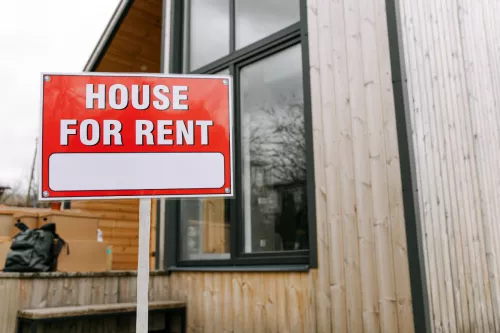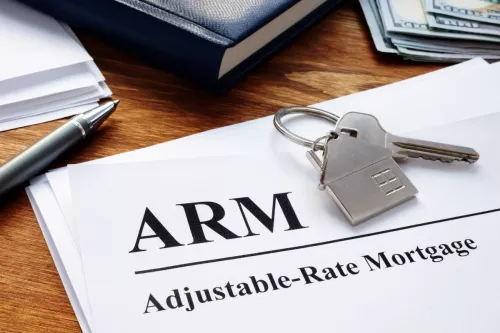Now, I know what you're thinking: windows are just windows, right? But, bear with me, because once you start to understand better what window replacement is all about, you will have a clearer idea about everything it covers.
You will understand that not only can new windows transform the look of your home, but they also come with a bunch of benefits like energy efficiency, noise reduction, and even increasing your property value. Let’s explore together how choosing the right windows can make a world of difference to your living space. So, are you ready to open the window to a whole new world?
What's a Reasonable Budget for Replacement Windows?
The cost of replacing windows typically falls between $460 and $1,400 for each window, covering both materials and labor for a standard double-hung window. The total expense for window replacements can vary depending on factors like the type of window, the installation service chosen, and the materials used.
Here's a summary of the usual costs associated with various types of windows:
Bay and Bow Windows ($2,000–$6,000)
Bay windows are composed of several large glass panels set in an angular protruding frame, while bow windows have a similar structure but with a curved design. Due to their size and complexity, these windows are generally more costly.
Casement Windows ($527–$1,200)
Operated with a hand crank, casement windows open horizontally, akin to a door.
Garden Windows ($1,320–$5,300)
Often referred to as greenhouse windows, garden windows have a box-like shape with a shelf, ideal for growing plants or herbs.
Double-Hung Windows ($467–$1,333)
These windows, which are affordable and widely favored, can be opened either from the top or bottom, allowing for optimal airflow.
Shaped Windows ($840–$1,200)
Windows with unique shapes, such as circular ones, fall on the higher end of the price spectrum due to the specialized labor and materials required for their construction, but they add a distinctive touch to a home.
Single-Hung Windows ($108–$380)
Similar in function to double-hung windows but with opening only from the bottom, single-hung windows offer increased security.
Picture Windows ($225–$793)
Also known as fixed windows, picture windows feature a single large pane of glass and do not open. Often custom-made due to their unique sizes and shapes, they offer expansive views of the outside.
Replacement vs. Retrofit Windows: What's the Difference?

The difference between replacement windows and retrofit windows lies in the extent of the installation process and the structural changes they entail.
Replacement Windows
Replacement windows involve a more comprehensive installation process. This typically includes the removal of the entire existing window, including its frame, sash, and sometimes part of the interior and exterior trim. It's a more invasive procedure that often requires significant adjustments to the window opening.
Replacement windows are usually chosen when the old window frame is too damaged to use, or when a different window style or size is desired. They offer the opportunity to change the window's material, style, and even its shape, allowing for a complete makeover. However, this process is generally more time-consuming and expensive due to the extensive work involved.
Retrofit Windows
Retrofit windows, on the other hand, are designed to fit into the existing window frame. This approach is less invasive, as it requires only the removal of the old window sash and not the frame. Retrofitting is a popular choice when the existing frames are still in good condition and no major changes in window style or size are needed.
The installation process for retrofit windows is typically quicker and less costly compared to full replacement windows. However, the design and size options are limited to the existing frame's dimensions and style.
Is It Cheaper to Replace All Windows at Once?
Yes, it usually is. Replacing all windows simultaneously allows for bulk pricing, reduced labor costs, and uniformity in appearance and performance. By opting to replace all your windows simultaneously, you might access significant discounts on both the windows themselves and the installation fees. This approach often leads to more substantial savings than replacing windows one at a time.
How to Measure for Replacement Windows?
Measuring for replacement windows might seem daunting, but don't worry, we’ve got you covered with six easy steps. Just grab a tape measure, a notepad, and let's get started!
Step 1: Measure the Width
Start by measuring the width of your window. You'll want to do this in three places: the top, middle, and bottom of the window opening. Use your tape measure and record the smallest of these three measurements. This ensures that the new window will fit in the narrowest part of the opening.
Step 2: Measure the Height
Next up, the height. Measure at the left, middle, and right side of the window opening. Just like with the width, jot down the smallest measurement. This helps avoid any surprises with uneven openings.
Step 3: Measure the Depth
Don't forget the depth! Measure from the outermost part of the window frame to the innermost part. You'll need at least 3-4 inches of opening depth for most replacement windows.
Step 4: Check for Square
Measure diagonally from corner to corner in both directions. The measurements should be the same. If they're not, your window opening might not be perfectly square, which is pretty common. Don’t panic – just make a note of it.
Step 5: Double-Check Your Measurements
Accuracy is key. Double-check all your measurements to avoid any mistakes. It's way easier to measure twice than to order the wrong size window!
Step 6: Record Everything
Write down all your measurements clearly, noting which measurement is width, height, and depth. Keeping everything organized is super important.
What to Consider When Shopping for Windows?
If you are looking for some guidance on what you should consider when shopping for windows, this smart shopper's checklist for finding the perfect windows for your home was made for you.
Window Type and Style
First, think about the type and style of window you want. Are you going for classic double-hung windows, stylish bay windows, or easy-to-use casement windows? Each type has its own benefits and aesthetic appeal, so choose what aligns with your home's design and your personal preferences.
Material
Window frames come in different materials like vinyl, wood, aluminum, and fiberglass. Each has its pros and cons. Vinyl is low maintenance and cost-effective, wood offers a classic look, aluminum is durable, and fiberglass is both strong and energy-efficient. Consider the climate you live in and how much maintenance you're willing to do.
Energy Efficiency
This is huge! Look for energy-efficient windows to save on heating and cooling costs. Check for the ENERGY STAR rating. Windows with low-E coatings, argon gas fills, and double or triple-pane glass are great for insulation and reducing energy bills.
Glass Options
The type of glass is another key factor. Do you need tempered glass for safety, or tinted glass for privacy? Also, consider the number of panes. Double-pane windows are standard for energy efficiency, but triple-pane windows offer even more insulation.
Aesthetics
Don’t underestimate the importance of how the windows look. You want them to complement your home's architecture and interior design. Think about the color, grid patterns, and even the hardware finishes.
Functionality
Consider how the windows operate. Do you prefer something easy to clean and maintain like tilt-in sashes, or are you looking for windows that provide maximum ventilation?
Warranty and After-Sales Service
A good warranty can be a lifesaver. Look for manufacturers with strong warranties on both the glass and other window components. Also, consider the reputation of the company for after-sales service.
Installation
Proper installation is crucial for window performance. Choose a reputable installer with experience. Sometimes, it’s best to go with the installation services provided by the company from which you’re buying the windows.
Budget
Finally, your budget. Keep in mind both the upfront cost and the long-term value in terms of energy savings, maintenance, and durability.
People also ask
Can I Replace My Windows Myself?
DIY window replacement can be tempting to save costs, but it's a complex task requiring precision and expertise. Improper installation can lead to air leaks, water damage, and voided warranties. Unless you're highly skilled, professional installation is recommended.
How long do replacement windows last?
The typical durability of windows ranges from 15 to 30 years. Factors such as the quality of the installation, the materials chosen for the windows, and the local climate conditions can cause this lifespan to fluctuate, potentially reducing it to between 10 to 15 years.
Why should I replace my windows?
Window replacement is an excellent choice for enhancing your home's appearance and boosting its market value. Additionally, installing new windows can lead to significant savings on energy costs. The market offers a diverse range of window replacement options to suit various budgets and home styles.
Here are some key advantages of window replacement:
Enhanced Energy Efficiency
Windows are responsible for 25-30% of the energy used for heating and cooling in residences. By replacing old windows, you can lower your energy bills from the first year of use.
Improved Insulation
New windows offer better insulation, keeping your home warm in winter and cool in summer.
Noise Reduction
Older windows often fail to block outside noise effectively, whereas new windows can significantly reduce noise pollution.
Boosted Curb Appeal
Installing new windows can modernize the look of your home, making it more attractive and potentially increasing its value.

 Marcio Vasconcelos
Marcio Vasconcelos





